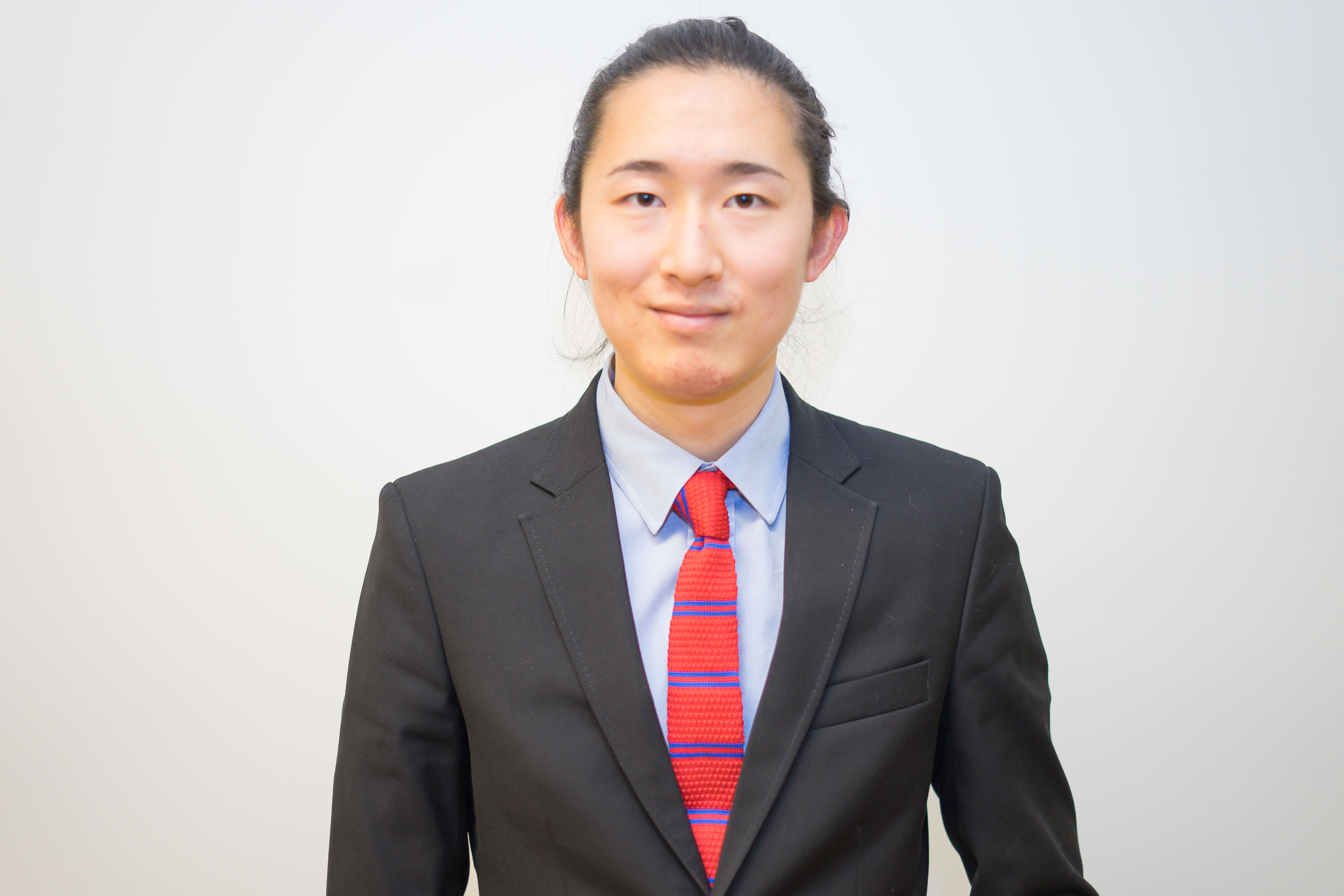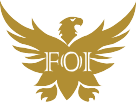
Q&A with Maomao Hu
Co-Founder & COO of Kora.
Principal Series:
Please join Family Office Insights for this luncheon on Thursday, March 15th at 12PM. If you care to join us, please email admin@familyofficeinsights.com.
Family Office Insights sits down with Maomao Hu to discuss Kora, a financial system built upon blockchain technology, providing a low-cost, accessible, financial platform for the underserved community, specifically, the 4 billion unbanked and underserved around the world. Currently, Kora has raised $1 million through private investment and in the process of raising $3 million through presale.

Family Office Insights is a voluntary, “opt-in” collaborative peer-to-peer community of single family offices, qualified investors and institutional investors. Join the community here www.familyofficeinsights.com
Tell us about your background.
When studying at NYU, the Occupy Wall Street movement was just a few blocks down. Their message that we were in an inequitable system where a small amount of people disproportionately owned all the wealth resonated with me, but I didn’t feel like they had a coherent solution. After 8 years of experience and just before finishing a graphic design degree, I realized that my current field wasn’t going to allow me to make the impact I wanted. I decided to enter finance in order to fully understand the market and how it all worked. I joined a management-consulting firm and did a project UAT testing money transfer systems for a top 3-wealth manager, among others, which in retrospect has been very helpful in my career. I also founded the Artificial Intelligence practice my firm. I left in 2014 to join AI startup Neurensic to lead technical sales and implementation for machine learning based compliance solutions, and later left to start my own AI startup. While working in AI, I started attending meet-ups, eventually joining a decentralized governance think tank, where I decided to write an essay on special economic zones in Shenzhen, China. Through my research, I met Dickson Nsofor, a native Nigerian who wrote his Masters thesis on special economic zones while studying in Shenzhen. We met up in person to further discuss his thesis, but ended up talking about blockchain instead. We saw the potential and impact of blockchain – and in one another – and co-founded Kora.
As for a quick background on Dickson, he grew up in Nigeria and attended Covenant University, also referred to as the “Harvard of Africa.” He founded 2 startups around the idea of financial inclusion through payments on low cost mobile phones, and was for a time the fastest growing mobile phone brand in Nigeria. However, for various reasons, including the naira plummeting and taking big financial hits, he sold the company to Chinese investors and left to pursue his Masters in China, before joining the UN. Dickson and I have different motivations for starting Kora, but the solution is the same. He is focused and committed to economic development while I’m looking for equitable distribution of wealth.
What is Kora?
The idea behind Kora is simple. We think opportunity to create value is currently unbalanced due to capital or birth environments, which give some people more or less opportunities based on finances and regions. We believe that aspect hides a lot of potential and creates unequal wealth distribution. Our mission is to give more equal opportunities through more equal access to financial services. We’re building a blockchain network that is essentially Uber for banks, where anyone can access bank-grade infrastructure at the click of a button and at minimal cost. We then use telecom networks to help people connect to the blockchain without Internet. Ultimately Kora aims to provide a low-cost, universally accessible financial services for as many people as possible.
Who is the target user for Kora?
Today’s financial services currently functions as a reverse pyramid, where those with the most wealth get the best services. We believe almost everyone in this system is underserved, and are choosing to focus on the most underserved, the 2 billion unbanked.
We currently have 2 betas in the works. First, we are working in Nigeria providing identity and domestic payments. In Peru, we are providing identity, cross-border payments and supply chain transparency for coffee farmers and exporters. Another impactful beta would be in Bangladesh, where we are providing the core banking system for a co-operative bank. With those 3 projects, our hands are full, but we see that anyone underserved is our target demographic.
What are some of the challenges you face in your market?
A big challenge is meeting regulatory requirements and understanding the local environments we are working in. In Nigeria, the biggest barrier was to get adequate regulatory coverage to receive payments and cash out. We had to find someone regulated under both the CBN (Central Bank of Nigeria) and the NCC (Nigerian Communications Commission) to be our payment payout partners, which took a long time. To our advantage, everyone we approached was very eager to work with our technology and users.
Currently, we have a great team of full-time developers, but we still face bandwidth concerns so finding the right talent can be a challenge. We found that the best way to have optimal workflow was to hire professionals with existing expertise, and train them on blockchain by giving them difficult projects until they get used to it. A surprising challenge is the ICO. The educational process of flying around the world to talk to everyone about the ICO has not necessarily been difficult, but it’s just a big time commitment.
How are you different from your key competitors?
In our honest opinion, we don’t believe that we have competitors because the customers we are serving are those who are literally unbanked. If we had direct competitors, they would already be doing what we are doing. We believe we are actually partners with banks rather than competitors, and we have banking partners in both Nigeria and Peru. There are ICOs and blockchains that claim they are for financial inclusion by providing identities and other financial services, but our key differentiation is the cost to access. None of the other players out there work without the Internet or a smartphone, which basically precludes all of their actual users. We are building our own blockchain, where the architecture provides customer privacy and auditability without requiring access to the Internet. We are offering something that is more scalable and cost effective than anything else out there.
How are you changing the landscape of your industry?
The crypto landscape is fairly new. Kora is utilizing blockchain technology to reduce the cost of running financial services, effectively passing on the savings to the underserved by reducing technology and operations costs. We are changing the landscape and filling it at the same time by exploring an area that no one has any clue what will look like in the future.
How much are you looking to raise?
We are raising a total of $24 million: $4 million in the presale and $20 million in the public sale. We have currently raised $1 million in a private sale. The presale is raising $3 million, which can be purchased at a 40% discount. We are looking for a minimum of $5K USD with no maximum at the moment.
What’s your mission?
Kora’s mission is to provide low cost, universal access financial services to as many people as possible.
What’s next for you?
The token presale is currently live and the public sale will begin on March 26th. We have the Nigeria and Peru beta in the works, and are currently developing the architecture for Bangladesh’s software, payroll interface, and connecting to partner telecom networks. Our focus is the ICO, recruiting more developers, and scaling our current pipeline.

Maomao Hu
Maomao’s experiences have focused on the intersection between machines and people. In 2014, he founded the Artificial Intelligence practice at management consulting firm The Capital Markets Company. Later, he joined AI startup Neurensic to lead technical sales and implementation for their machine learning based compliance solution. Seeing the potential and impact of Blockchain, he moved from AI to co-found Kora.
If you have any questions, please contact Maomao at maomao@kora.network.
